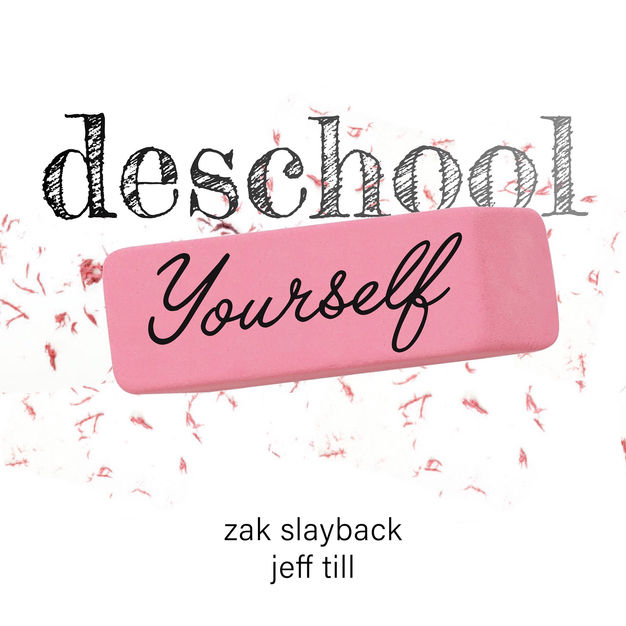DSY 6 - Schooling vs. education
Zak and Jeff talk about the difference between schooling and education. Topics include:
School learning:
- Being taught that learning is a grind, learn to hate learning
- Memorization
- Instructor-based learning – The lecture, 5,000 year old teaching technology
- Learning by "not doing"
- Testing and grades
- Forgetting after the test
- Absence of free play
- Not taught critical thinking.
Extrinsic incentives and punishments for ‘learning’
Do you know how to learn intrinsically?
Does your relationship or experience with learning block you now from learning new things, taking chances, improving your self worth/self esteem
Good education/learning
- Learning is life-long and constant
- The way you really learn today personally, in your work, for your hobbies, in your relationships, for fun
- Resetting priorities on what is necessary or desirable to learn, not through a curriculum developed by bureaucrats, but through you interests and real-life needs
- Intrinsic learning – learning as its own reward
- Becoming autodidactic
- Rekindling a love of learning
- Learning methods and models (e.g., Trivium, quadrivium, others)
- Establishing your way of learning in your day-to-day life
- Explain the difference between schooling and learning
School learning:
— KEY POINT: Schooling is COERCED. Learning is CHOSEN. Some learning can happen in a school-like context, but it has to be chosen by the subject. School removes the context around learning, almost guaranteeing that learning won’t actually happen.
- Being taught that learning is a grind, learn to hate learning (i.e., learning is something you “have” to do, not something you “get” to do.)
- Memorization — either blunt memorization or memorization of systems (i.e., algebra, etc)
- Instructor-based learning – The lecture, 5,000 year old teaching technology
- Learning by "not doing" — compare to coaching or riding a bike
- Testing and grades — Teaches that knowledge exists only on a two-way spectrum.
- Forgetting after the test
- Absence of free play
- Not taught critical thinking.
Extrinsic incentives and punishments for ‘learning’ — carrot and stick incentives
Self-exam
Do you know how to learn intrinsically?
Why does one learn?
What feeling do you get in your gut when you think about learning? What images are conjured in your mind?
Does your relationship or experience with learning block you now from learning new things, taking chances, improving your self worth/self esteem?
Do you feel exhausted when you think about learning something new or do you get juiced?
Good education/learning
TRUE learning exists when the subject willfully CHOOSES to learn; this happens best when they have a strong enough belief to drive them to learn, i.e., a strong enough “why” for learning.
- Learning is life-long and constant
- The way you really learn today personally, in your work, for your hobbies, in your relationships, for fun
— Do you learn tactically? Audibly? Do you learn through experience or do you prefer to read?
- Resetting priorities on what is necessary or desirable to learn, not through a curriculum developed by bureaucrats, but through you interests and real-life needs
- Intrinsic learning – learning as its own reward
- Becoming autodidactic
- Rekindling a love of learning
- Learning methods and models (e.g., Trivium, quadrivium, others)
- Establishing your way of learning in your day-to-day life
23 February 2017, 9:32 pm
